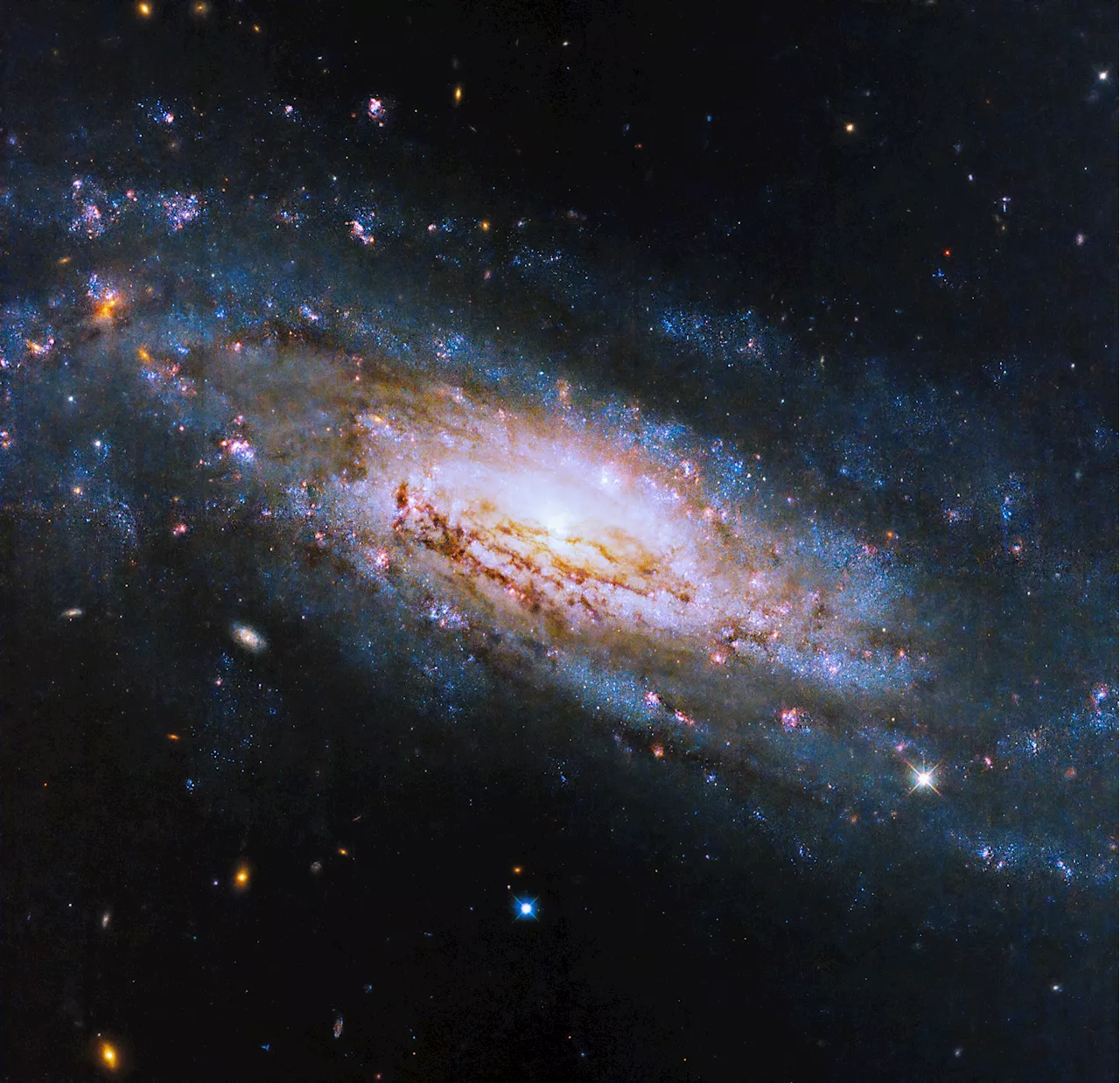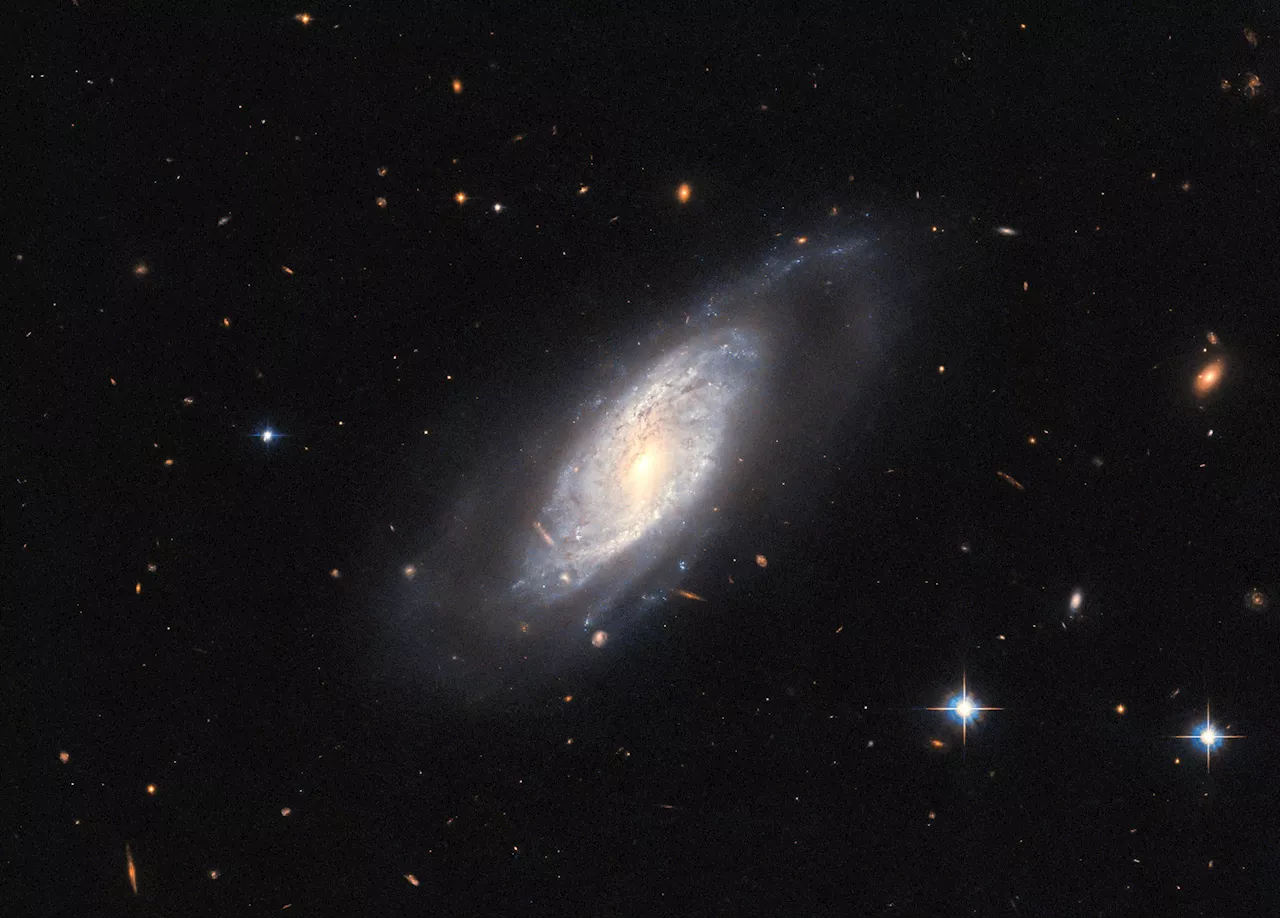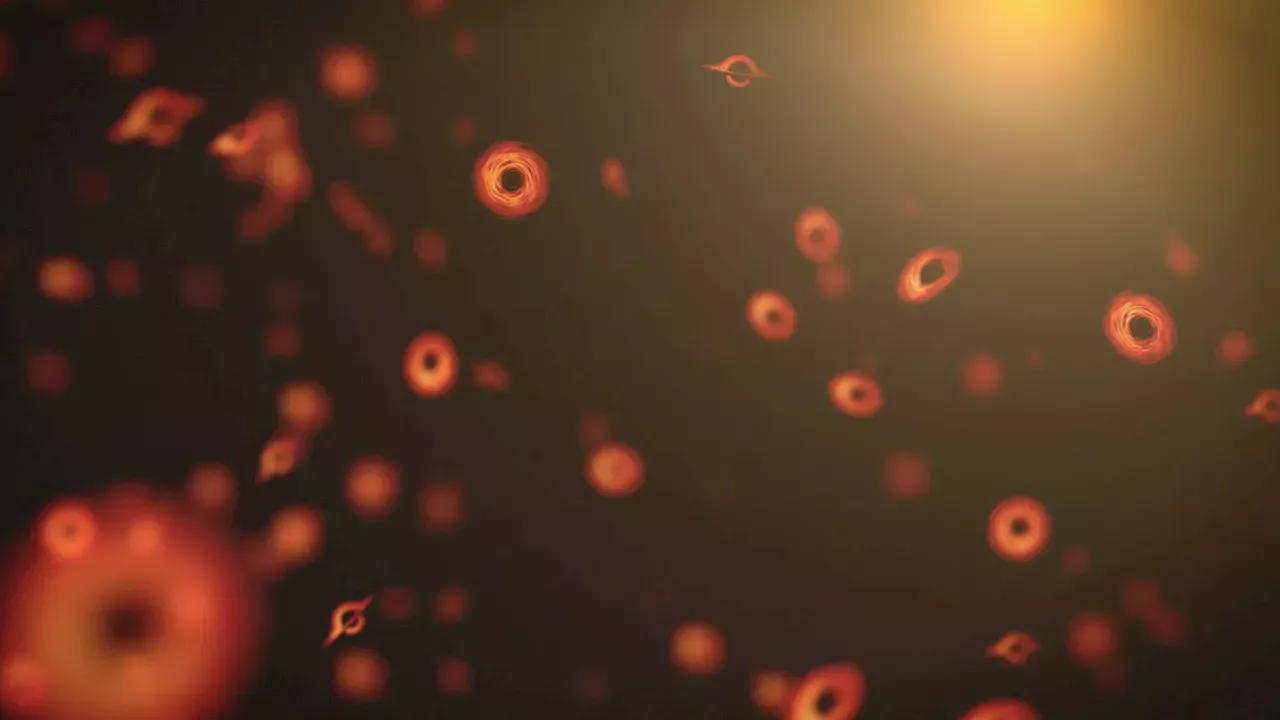With a field of view at least 100 times larger than Hubble's, Roman telescope will survey the sky 1,000 times faster than the former can .
Scheduled to launch by May 2027, the Nancy Grace Roman Space Telescope will unveil the cosmos in ways that have never been possible before.
DeRocco, who led a study about how Roman could reveal them, said, “If we find them, it will shake up the field of theoretical physics.” Astronomers think that the smallest ones would have evaporated before the universe reached its current age but primordial black holes with masses similar to Earth could have survived.Finding these in space is expected to have an enormous impact on physics and astronomy.“Confirming their identities will be hard work and astronomers will need a lot of convincing, but it would be well worth it.”
United States Latest News, United States Headlines
Similar News:You can also read news stories similar to this one that we have collected from other news sources.
 Supermassive Spectacle: Hubble Captures a Galaxy With a Voracious Black HoleScience, Space and Technology News 2024
Supermassive Spectacle: Hubble Captures a Galaxy With a Voracious Black HoleScience, Space and Technology News 2024
Read more »
 Hubble views a galaxy with a voracious black holeBright, starry spiral arms surround an active galactic center in this new NASA Hubble Space Telescope image of the galaxy NGC 4951.
Hubble views a galaxy with a voracious black holeBright, starry spiral arms surround an active galactic center in this new NASA Hubble Space Telescope image of the galaxy NGC 4951.
Read more »
 Hubble views a galaxy with a voracious black holeBright, starry spiral arms surround an active galactic center in a new NASA Hubble Space Telescope image of the galaxy NGC 4951. Located in the Virgo constellation, NGC 4951 is located roughly 50 million light-years away from Earth.
Hubble views a galaxy with a voracious black holeBright, starry spiral arms surround an active galactic center in a new NASA Hubble Space Telescope image of the galaxy NGC 4951. Located in the Virgo constellation, NGC 4951 is located roughly 50 million light-years away from Earth.
Read more »
 Hubble Space Telescope glimpses spiral galaxy UGC 9684The celestial object showcased in this image from the NASA/ESA Hubble Space Telescope is the spiral galaxy UGC 9684, which lies around 240 million light-years from Earth in the constellation Boötes.
Hubble Space Telescope glimpses spiral galaxy UGC 9684The celestial object showcased in this image from the NASA/ESA Hubble Space Telescope is the spiral galaxy UGC 9684, which lies around 240 million light-years from Earth in the constellation Boötes.
Read more »
 How ‘safe mode’ protects space telescopes like Hubble and TESSBriley Lewis (she/her) is a freelance science writer and Ph.D. Candidate/NSF Fellow at the University of California, Los Angeles studying Astronomy & Astrophysics. Follow her on Twitter briles_34 or visit her website www.briley-lewis.com.
How ‘safe mode’ protects space telescopes like Hubble and TESSBriley Lewis (she/her) is a freelance science writer and Ph.D. Candidate/NSF Fellow at the University of California, Los Angeles studying Astronomy & Astrophysics. Follow her on Twitter briles_34 or visit her website www.briley-lewis.com.
Read more »
 Galactic Wonders: Hubble Explores a Supernova FactoryScience, Space and Technology News 2024
Galactic Wonders: Hubble Explores a Supernova FactoryScience, Space and Technology News 2024
Read more »
